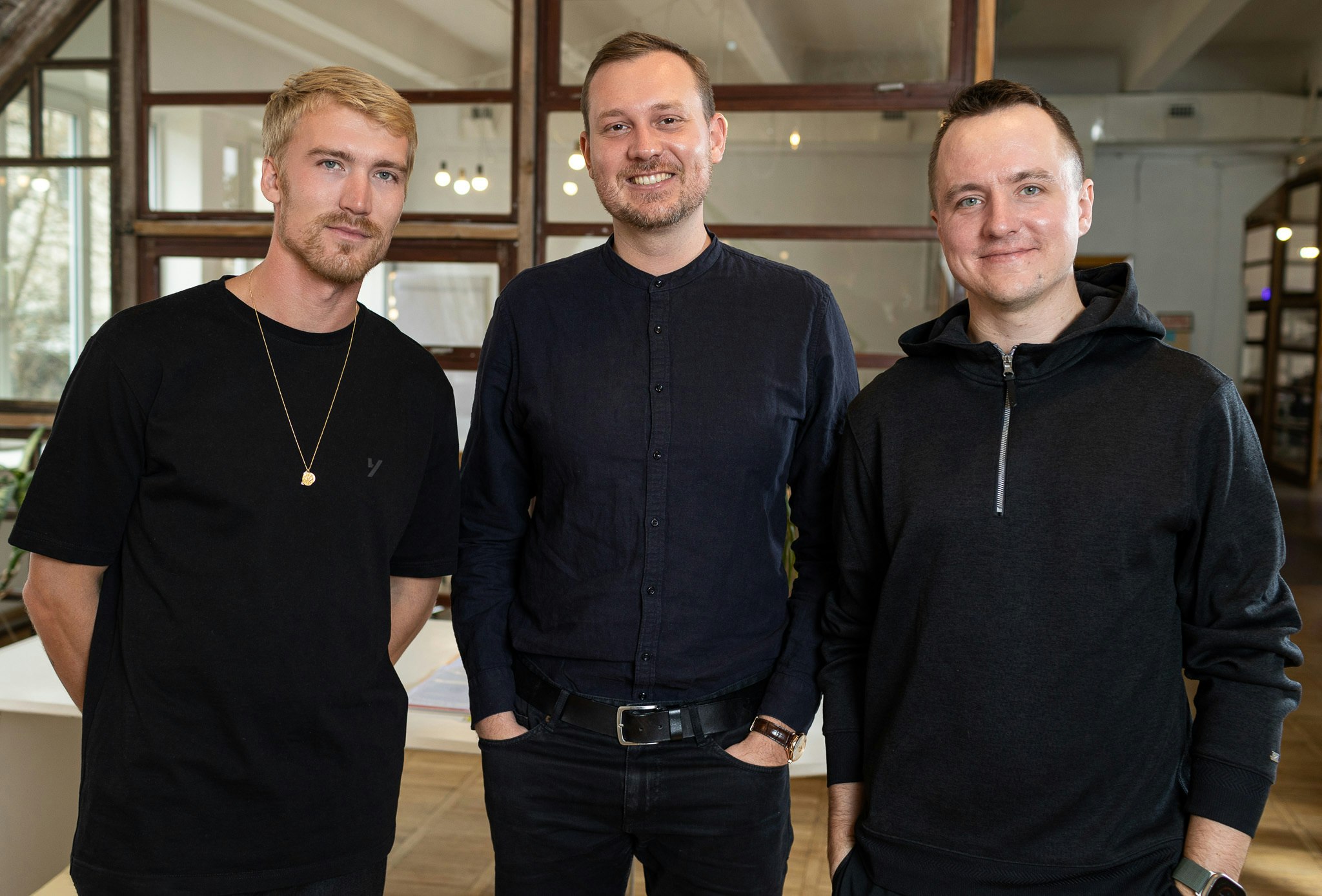2023 was something of a slow burn for European tech. A total of $45bn will have been pumped into European startups by the end of 2023 — a drop of more than half on the peak of $100bn in 2021.
VCs have had a tough year too: a Sifted survey in November found that more than half of them hadn’t returned capital to their LPs in the last 12 months.
So what's in store for 2024? Sifted journalists share their predictions below.
Amy Lewin, editor
Things will be a bit more normal
Everything we expected would happen in 2023 will happen in 2024: the M&A market will hot up, a number of once well-funded startups will go bust and plenty of VCs will try — and fail — to raise funding.
But this should also, hopefully, be a year that feels more ‘normal’. Once valuations fully right size across the continent, founders (and investors) will know where they’re at — and then can get on with things.
I expect deal count will pick up at all stages, as will hiring. And, because this is venture, a new, perhaps-world-changing, perhaps ridiculous, technology will catch everyone’s eye and AI will remain hawt — but not so hawt.
Eleanor Warnock, deputy editor
US tech talent heads to Europe as Trump becomes US president
2024 is a year of elections, including the closely watched US presidential election in the autumn. A Donald Trump win could see some elite tech founders and operators vote with their feet, moving to a more liberal Europe (also better access to healthcare, amirite?).
While Europe is already a net recipient of tech talent, this election result — coupled with broader polarisation — could accelerate that. With the world facing huge challenges like climate change, more founders want to build companies that reflect their values, and they want to live in geographies with the same values.
European VCs learn how to lobby — and start to hire policy pros
The first two decades of the 20th century saw governments and Big Tech facing off (Uber, Facebook, even Napster — still love you). Now, with the deadly effects of climate change even more evident and geopolitical tensions increasing, governments need to work with tech. They want to encourage more climate tech and deeptech innovation to stay competitive and resilient. Which will provide a massive headwind to companies working in those spaces. US VCs have long had lobbyists in Washington. Now it’s time for European VCs to do the same thing in Brussels.
Read Eleanor's article on the fate of 2021's fastest growing companies three years on here.
Freya Pratty, climate tech reporter
In climate tech, an end to carbon tunnel vision
Carbon emissions present an existential threat to humanity; but it’s not the only climate fight on our hands. There are other, damaging gasses like methane and nitrous oxide being emitted at an alarming pace. There are also other threats less directly linked to emissions, like the continuing loss of biodiversity.
CO2 has hogged the limelight — it’s by far the area with the most founders working on solutions, and the area seeing the most investment.
2023 has seen other areas gain more focus — the biodiversity tech sector has started to grow; there’s a nascent line of methane tech deals and VCs are starting to think about areas like water conservation technologies, too. In 2024, I think we’ll see that move forward even more, spurred on by legislation like the US’ new curb on methane emissions and developing non-financial disclosure rules, set to broaden reporting requirements beyond CO2.
Read Freya's look back at climate tech in 2023 here.
Tim Smith, AI reporter
AI is going to get boring in 2024
2023 was the year where we were all snake charmed by the magic of generative AI, like the large language models that power ChatGPT and image generators like Dall-E and Midjourney. But 2024 will be the year that we work out how to build products with the tech.
For the most part these will be products for enterprise: tools to make white-collar workers more efficient where you won’t even see the AI in many cases. Remind you of anything?
2024 is the year where VC’s old and new favourite drugs — SaaS and AI — come together in a vicious cocktail, and that’s where I see most of the activity coming.
This isn’t to say we won’t see cooler stuff coming down the track. I think we’ll continue to see top founders from AI labs like DeepMind leaving to start companies in more futuristic fields like material science and robotics, but results in these areas naturally come more slowly.
Read Tim's predictions for AI in 2024 here.
Mimi Billing, Nordics correspondent
US election delays the IPOs of Northvolt and Klarna to 2025
With a harsher financial market, a lot of scaleups that had an IPO in mind put their plans on hold until the market had stabilised. And it looks like it has. Listed tech companies are slowly recovering from rock bottom.
So, is 2024 the year when large Nordic scaleups like battery maker Northvolt and payment company Klarna go public?
No.
With the coming US election this autumn, companies will either have to decide on a quick entry on a stock exchange at the beginning of the year or face a lack of investor FOMO come the autumn.
For companies like Klarna and Northvolt, which can still rely on capital outside of the stock market, the risk of a poor listing isn’t worth it.
Whether we like it or not, European companies are still heavily reliant on US capital so, unfortunately, the big IPOs for European tech companies will wait until 2025.
Read Mimi's wrap of Nordic tech in 2023 here.
Miriam Partington, DACH correspondent
After ESOP reform, German startups will push for more
The German government is often criticised for being slow to execute when it comes to startup policy. But this year, it made great strides.
Its biggest success this year was passing the so-called Future Financing Act which included measures to ease tax rules around employee stock ownership programmes (ESOPs). It also unveiled a new €1bn fund for deep tech and climate tech companies, as well as a €1bn fund of funds to invest in German and European VC in a bid to make more growth capital available.
So, now that startups have had a taste of what the government can do when politicians put their heads together, they’ll likely push for more.
A big challenge for many companies is being able to easily hire tech talent from abroad — a process which is still cumbersome (and largely not digitalised), despite a series of reforms that were passed earlier this year to help migrants settle in Germany more smoothly.
Another issue is having better access to financing options such as grants — Germany has a ton of them, they’re just difficult to apply for, say founders (imagine wading through pages of German legalese before you can figure out what the application is even asking for…)
Germany will have its work cut out for it, given the economy this year has taken a beating. But startups can, and should, be part of its revival plan. Let’s see whether 2024 will grant the nation’s startups what they want.
Read Miriam's wrap up of German tech in 2023 here.
Kai Nicol-Schwarz, healthtech reporter
Digital health M&A will pick up
Startups that raised during the boom times of 2021 and 2022 will reach the end of their runway in 2024, and will struggle to raise again.
Funding for digital health startups hit its lowest levels since 2018 this year — and there’s little expectation that things will radically shift in 2024.
While a post-Covid investment surge plumped up the sector for a time, a couple of years on there are concerns over digital health startups' prospects of expanding internationally and hitting the sort of scale seen in sectors like fintech and SaaS.
Investor caution isn’t helped by some of Europe’s most successful digital health startups falling foul of the complexities of taking a healthcare offering from one country to another in recent times. UK telehealth Babylon crashed and burned this year, Sweden’s Kry pulled back from some international markets and Doctorly has reportedly struggled to launch in Germany.
The result? A cabal of digital health startups with dwindling cash reserves in the face of an unsympathetic investor community turning to M&A. Expect multinational healthcare corporates, insurers and maybe even some of the largest startups to take advantage of smaller startups' disadvantage.
Read Kai's predictions for healthtech in 2024 and round up of UK tech in 2023 here.
Daphné Leprince-Ringuet, France correspondent
Investors, founders, and policymakers will double down on AI
2023 was the year that France let itself dream of becoming a European AI champion, largely thanks to six-month-old startup Mistral AI scoring two massive rounds of fundraising with the promise of becoming an OpenAI challenger.
It wasn’t just the founders. French billionaire Xavier Niel invested €200m in expanding France’s AI capabilities and launched a Paris-based AI lab partly funded by ex-Google CEO Eric Schmidt. And president Emmanuel Macron himself made a point of showing his support for AI startups, unlocking significant pockets of money to support the sector and promising there is more to come.
AI is set to take an even bigger place in the next 12 months as France attempts to establish itself as a legitimate competitor to the UK and Germany. High-profile companies like Mistral, Dust or Nabla will take centre-stage as they release new products and announce partnerships. More public and private money will flow to the sector. And promising AI startups will continue to emerge — especially if they are founded by French scientists and engineers returning from the US labs of Meta, Google or OpenAI.
Read Daphne's round up of French tech in 2023 here.
Sadia Nowshin, editorial assistant
2024 will be a good year for biotech
Just as 2023 drew to a close, a treatment for sickle cell disease developed using the gene-editing software from UK-based CRISPR was the first to be approved by British and American regulators — potentially marking what the keynote speaker at December’s Genesis life science conference coined as “the dawn of a new age of medicines.”
That could be good ammunition for techbios going into 2024 that want to convince investors that it’s not an insurmountable gamble to take a punt on their tech. Getting regulators on board overcomes one of the major barriers stopping VCs from pitching in: it shows that there is potential for therapies and drugs created in a techbio pipeline to make it to market, even if that process takes a little longer than your average startup product.
But though there are exciting things on the horizon for Europe’s techbio scene, the consequences of 2021 may yet catch up to some of the sector’s big players.
Generalist investors who wanted to get in on the techbio x AI hype when capital was abound may have inflated techbio startup valuations to the level of tech startups in their excitement — an inflation that, given the reality of the timeline for a techbio pipeline to show concrete promise, will likely result in some downrounds when these startups look to raise their next lot of capital from more scientific investors and in a more sober fundraising environment.
Read Sadia's round up of the fastest growing startups in 2023 here.


